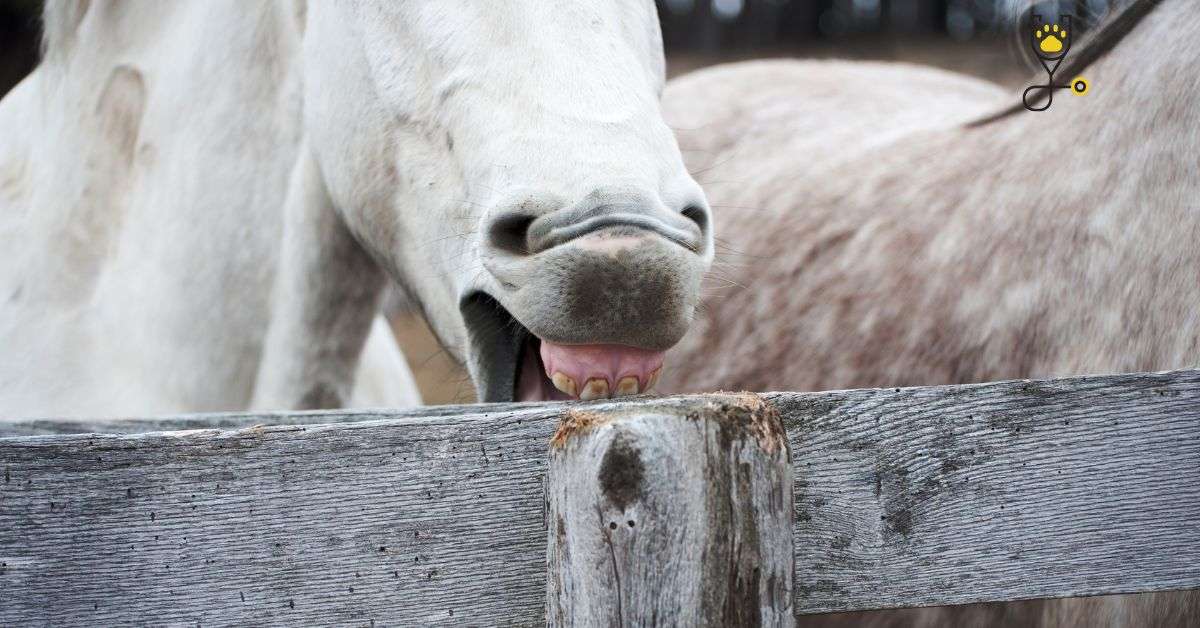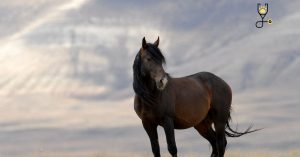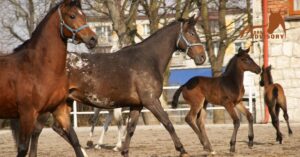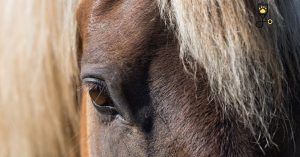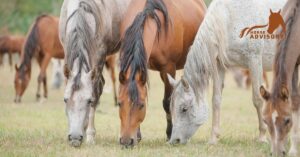Do you have a horse that likes to chew on wood? It can be frustrating when your horse decides to start chewing on wood, but there are a few things you can do to help discourage this behavior. In this post, we’ll discuss what causes horses to chew on wood and some tips for preventing it. We’ll also cover some of the possible consequences of allowing your horse to chew on wood and how to address them. So, if you’re dealing with a chewer, read on for some helpful advice!
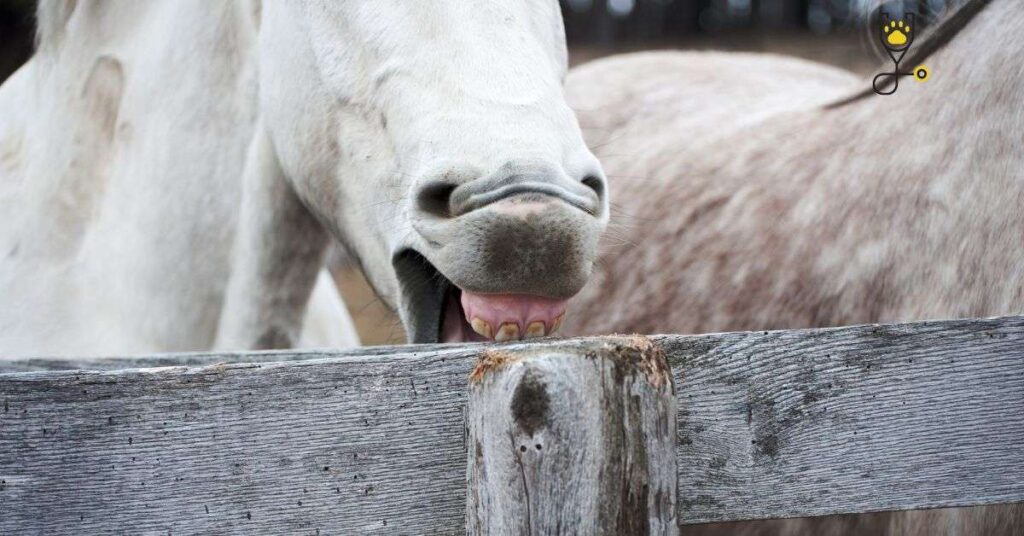
Why Do Horses Chew Wood?
There are a few reasons why horses might chew on wood. So we will discuss possible reasons behind it, and also find out the best solution for it.
Boredom: One of the most common reasons horses chew on wood is boredom. If a horse doesn’t have enough to do, it may start chewing on wood out of sheer boredom. This is especially common in stabled horses who don’t have access to pasture or who are confined to small areas.
Hunger: Another possibility is that your horse is actually hungry and is trying to satisfy their hunger by chewing on wood. This is more likely to be the case if your horse isn’t getting enough food or if they are missing out on key nutrients that they need. Make sure you are feeding your horse a balanced diet and providing them with plenty of hay or grazing time.
Dental Problems: Sometimes, horses chew on wood because they are experiencing pain from dental problems. This could be anything from a simple toothache to more serious issues like an abscessed tooth. If you think your horse’s chewing behavior is due to dental problems, have them checked out by a veterinarian.
Nutritional Deficiencies: Another possibility is that your horse is chewing on wood because they are deficient in certain vitamins or minerals. This is most likely to be the case if your horse isn’t getting enough roughage in their diet or if they are lacking in a specific nutrient. Speak to your veterinarian about whether your horse might need supplements to correct any deficiencies.
Cribbing: Cribbing is a type of behavior where horses grab onto something with their teeth and then arch their necks and pull, making an “ahh” sound. It’s often considered a bad habit, but it can also be a sign of underlying physical or psychological problems. If your horse is cribbing, you should have them evaluated by a veterinarian to rule out any underlying issues.
As you can see, there are a few different reasons why horses might chew on wood. If your horse is chewing on wood, it’s important to try to figure out the reason behind the behavior so that you can address it appropriately.
Learn More About Horse: The Ultimate Guide To Ownership & Care
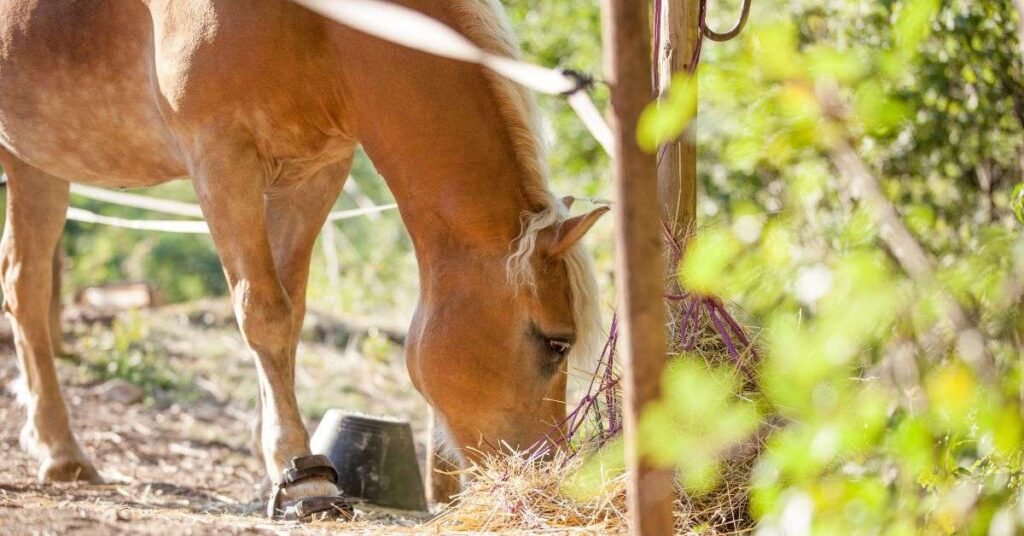
Tips for Preventing Horse Chewing
As you can see, there are a few different reasons why horses might chew on wood. If your horse is chewing on wood, it’s important to try to figure out the reason behind the behavior so that you can address it appropriately.
There are a few things you can do to help prevent your horse from chewing on wood.
Provide Plenty of hay
One of the best things you can do is to make sure your horse has plenty of hay to eat. Horses are natural foragers, and they love to nibble on hay throughout the day. If your horse has enough hay to keep them occupied, they’ll be less likely to start chewing on wood out of boredom.
Read More: How to Stop a Horse From Bucking
Give Them Something to Chew On
Another way to prevent wood chewing is to give your horse something else to chew on. This could be a Chew Toy or a piece of salt block. There are also special “wood chews” made from compressed timothy hay that are safe for horses to chew on.
Provide Adequate Exercise
Another important thing you can do is to make sure your horse is getting enough exercise. Horses are meant to move, and if they’re confined to a small area or don’t have enough to do, they may start chewing on wood out of boredom. Provide your horse with plenty of turnout time or ride them regularly to help keep them from getting bored.
Read More: How to Stop Your Horse From Biting
Monitor Their Diet
Finally, it’s important to monitor your horse’s diet to make sure they’re getting all the nutrients they need. If your horse is lacking in certain vitamins or minerals, they may be more likely to start chewing on wood. Speak to your veterinarian about whether your horse might need supplements to correct any deficiencies.
Socialize Your Horse
If your horse is isolated from other horses, they may start chewing on wood out of boredom or anxiety. It’s important to socialize your horse and make sure they have regular contact with other horses. This will help keep them from getting bored or anxious and can help prevent wood chewing behavior.
By following these tips, you can help prevent your horse from chewing on wood. If your horse does start chewing on wood, it’s important to try to figure out the reason behind the behavior so that you can address it appropriately.
Learn More: Social Behaviors of Wild and Domestic Horses
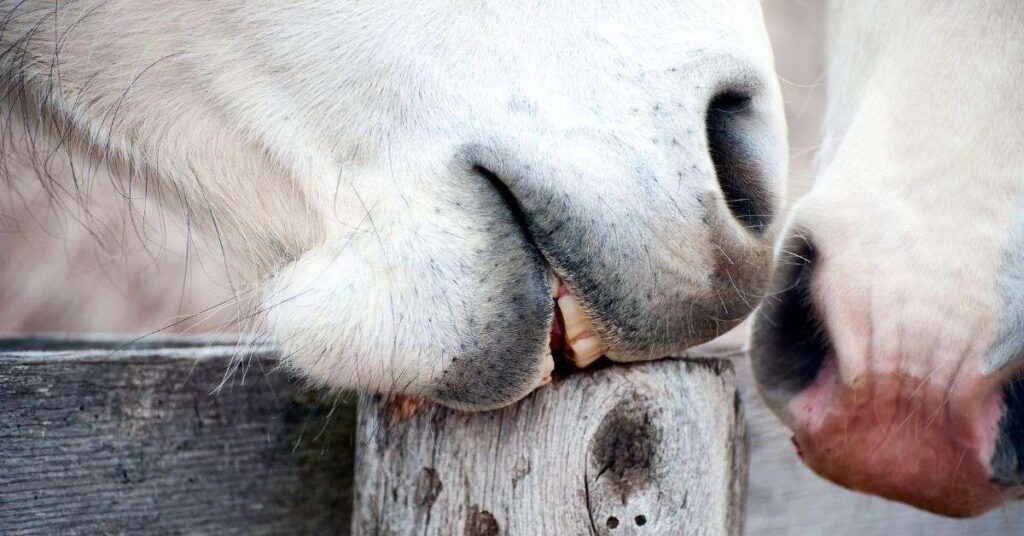
FAQs Regarding Why Horses Chew Wood
Why does my horse chew on wood?
There are a few different reasons why horses might chew on wood. It could be due to boredom, malnutrition, or underlying physical or psychological problems. If your horse is chewing on wood, you should have them evaluated by a veterinarian to rule out any underlying issues.
What can I do to prevent my horse from chewing on wood?
There are a few things you can do to help prevent your horse from chewing on wood. You can provide them with plenty of hay, give them something else to chew on, provide adequate exercise, and monitor their diet. You can also socialize your horse and make sure they have regular contact with other horses.
My horse is chewing on wood. What should I do?
If your horse is chewing on wood, you should have them evaluated by a veterinarian to rule out any underlying issues. You can also try to provide them with plenty of hay, give them something else to chew on, provide adequate exercise, and monitor their diet. You can also socialize your horse and make sure they have regular contact with other horses.
